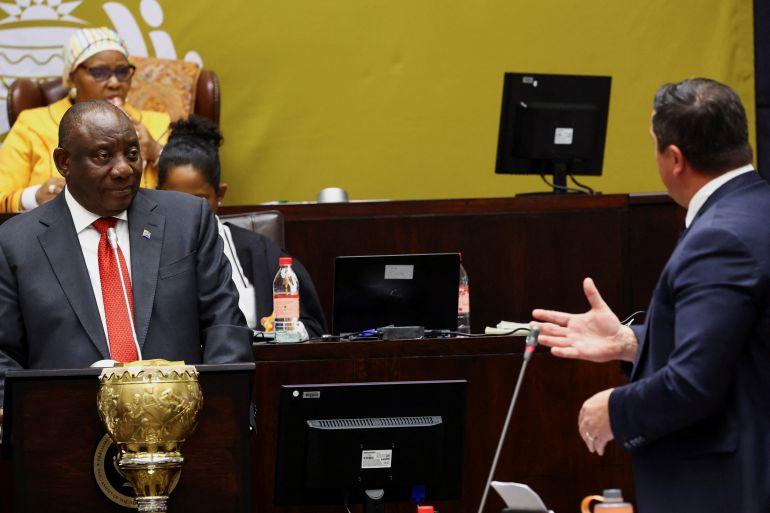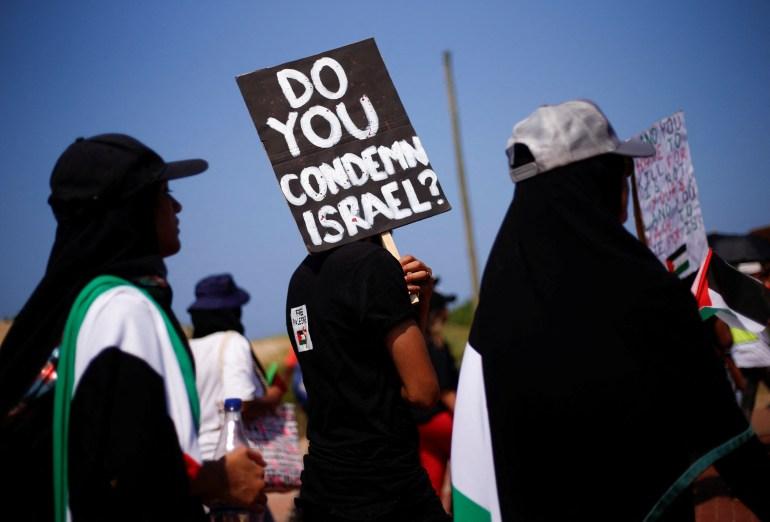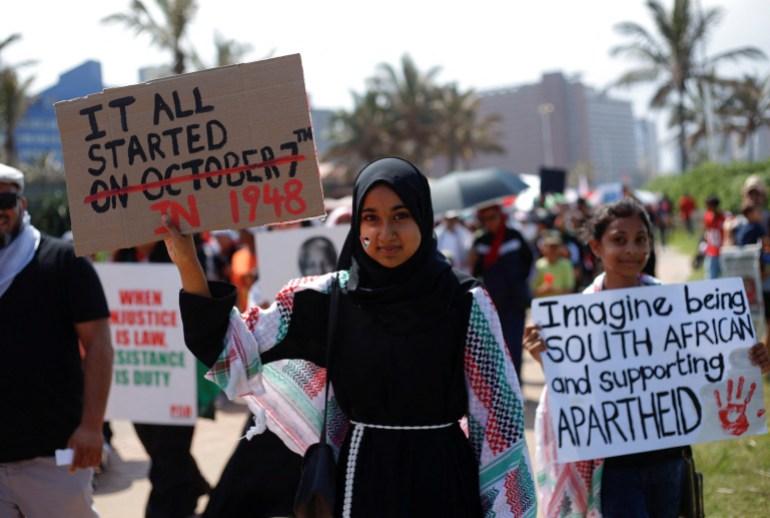Source: ALJAZEERA
ALJAZEERA MEDIA NETWORK

The new coalition government in South Africa, including different political parties, influences the ANC's unwavering support for Palestine amidst varying views on the Israel-Palestine conflict.
Cape Town, South Africa – When the African National Congress (ANC) in South Africa brought Israel to the International Court of Justice (ICJ) in January over allegations of genocide in Gaza, the move garnered global applause, especially from nations in the Global South.
However, domestically, reactions were mixed among the country's political parties. The ANC’s main opposition, the Democratic Alliance (DA), opposed the move at first but later urged Israel to follow the ICJ’s interim rulings. The Patriotic Alliance (PA), a right-wing populist party, deemed South Africa’s action a “joke”.
Now, five months later, the ANC has formed a coalition government with the DA and, to a lesser extent, the PA and the Inkatha Freedom Party (IFP), sparking concerns about potential shifts in South Africa’s policy on Israel and Palestine.
For the first time since apartheid ended, the ANC did not win a majority in the May elections.
The ANC maintains that its supportive stance towards Palestine will not waver despite the new coalition agreement.
Analysts, however, caution that a coalition-governed South Africa might have to make internal compromises regarding its Palestine policy, following months of international efforts to hold Israel accountable for the violence in Gaza, which has resulted in over 37,000 deaths.
 Pro Palestine protest
Pro Palestine protest
The DA and IFP have opted for a neutral stance on the Gaza war, while the PA has shown support for Israel.
An agreed-upon clause in the coalition deal asserts that South Africa’s foreign policy would be grounded in specific principles, including human rights, constitutionalism, and peaceful conflict resolution.
The ANC conceded that the DA is unlikely to change its position on the Israel-Palestine issue but assured that it would uphold its long-standing solidarity with Palestinians.
“Will the ANC abandon its foreign policy views? Certainly not, and neither will the DA change its stance,” stated ANC Secretary-General Fikile Mbalula, dismissing claims of the ANC potentially altering its critical view on Israel as "misleading and populist."
South Africa’s support for Palestine is deeply linked to its own lengthy struggle against apartheid, with President Cyril Ramaphosa often labeling Israel as an apartheid state.
 Pro Palestine rally in South Africa
Pro Palestine rally in South Africa
Initially, the DA had unwavering support for Israel but has since adopted a middle-ground stance advocating for “peace”.
Prior to the elections, the ANC slammed the DA for taking a firm position on the Ukraine war while not equally supporting Palestine, especially after DA leader John Steenhuisen's visit to Kyiv.
The DA, in turn, accused the ANC of inconsistent foreign policy due to a so-called "cosy" relationship with Russian President Vladimir Putin.
Despite condemning Russia’s invasion of Ukraine, Ramaphosa attempted a peace-making role while maintaining cordial relations with Putin.
After signing the coalition agreement that re-elected Ramaphosa, South Africa maintained its solidarity with Palestine at a peace summit in Switzerland, even rejecting the final communique due to Israel's participation, highlighting what it described as international double standards in enforcing international law.
Siphamandla Zondi, a politics and international relations professor at the University of Johannesburg, suggested that while the ANC as a party won’t abandon its Palestine stance, government actions might necessitate compromise.
“The ANC might not pursue aggressive litigation against Israel and might settle for a principal stance similar to its position on Ukraine,” he noted.
At the ICJ, South Africa accused Israel of genocide, backed by over a dozen countries. Although the DA initially criticized the move, it agreed to comply with the court’s ruling.
“The coalition agreement will impact the government’s ICJ case since the ANC relies on the DA,” Zondi explained.
He highlighted that while the ANC is unlikely to cede the international relations ministerial role, the DA’s influence over policy decisions will be significant. Under the coalition deal, decisions need “sufficient consensus” supported by 60% of the parties, meaning the ANC can’t act alone if the DA and IFP oppose a decision together.
Your email address will not be published. Required fields are marked *